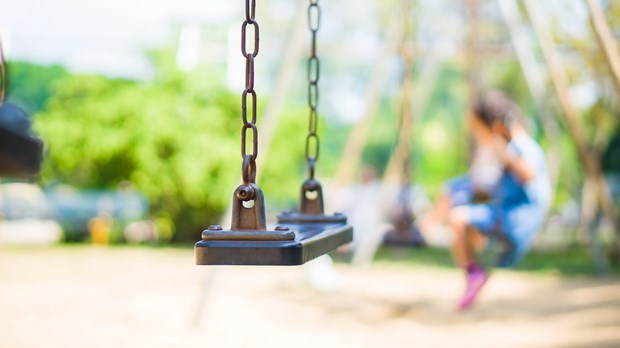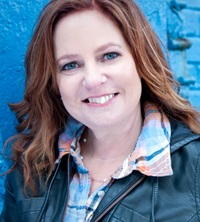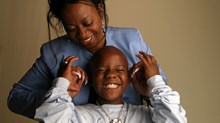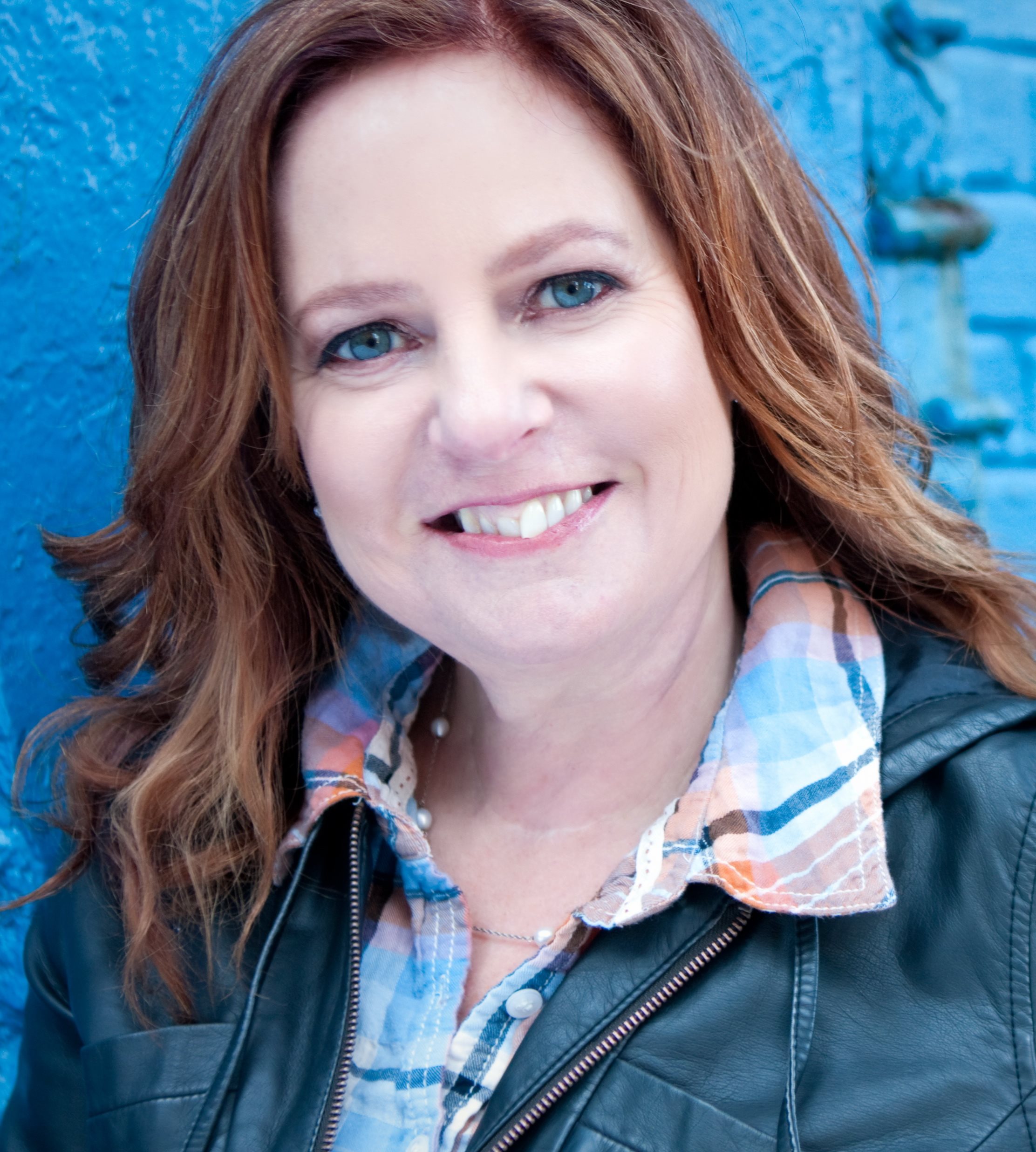Does the Pain of Abortion Ever Go Away?

Julie Woodley was watching her four children playing at the beach when the truth suddenly dawned on her: there should be two more children here. And although she was actively extending hope and healing to others who’d endured abortion—even leading post-abortion retreats—Julie realized she’d not yet processed her own abortion trauma and grief. When the
hosts at a retreat she’d been invited to co-lead gently relieved her of her clipboard, Julie, too, experienced lifegiving redemption alongside other women who’d also been hurting.

Julie Woodley
We asked Julie—founder and director of Restoring the Heart Ministries, and division chair of the American Association of Christian Counseling’s “Abortion, Sexual Trauma and Mental Health Divison”—how the church can best serve women who’ve had an abortion.
Julie, what do you think women expect—physically, emotionally, spiritually—before an abortion?
I think they’re in trauma and they’re in an urgent place where they need to make a critical decision. Rationally, they’re not thinking about how an abortion would affect them. That’s why it’s important to be able to reach them on the way to the clinic. In fact, I have done that many times where a mother will call me and put her daughter on the phone because the daughter doesn’t have any idea what is on the other side of abortion.
There are a number of reasons why that is. One is, of course, the media and Planned Parenthood. In my crazy, wild days of my own two abortions, I worked for Planned Parenthood, so I knew the language we were to feed these girls about abortion. In many ways, we really brainwashed them into thinking abortion was an easy solution.
What’s the story they’re not hearing?
The story is that abortion is absolutely devastating and life changing. I think those of us who have had abortions have the “before abortion” and “after abortion” story. Abortion changes our lives. This is why I created the program, “Into My Arms.” Many Christians—including Christian therapists—don’t understand just how many layers of devastation, trauma, and grief a woman goes through after an abortion.
While every woman is unique, I’m wondering what women might experience in the wake of an abortion that they might not have anticipated.
Her relationships are definitely affected—her relationship with her significant other, intimacy issues, and her relationship with God. She will often isolate herself from God because she is filled with shame and regret. She doesn’t feel worthy to even have God in her life. It affects
her relationship with her children and her future children. It affects her relationships with others. It affects her physically on many different levels as well. It affects her emotionally to the depths of who she is.
What do women who’ve experienced an abortion need from their friends in the immediate wake of the procedure, and what do they need years later?
What I would suggest is for someone to reach out to these young women and just love them. Let them know you are there to listen to them. You are there to love them. You are not there to shame them. If you give any indication of shame or if you’re upset with them, they will run. They won’t come back. It’s important just to reach out with the hands and love of Christ in the beginning of their process— and realize that it is a process. All women are unique in their process. I have women come to me two days after an abortion. I have also had some women who couldn’t come and speak about it until 20 years later.
It’s also important to acknowledge how much the experience has harmed them. Some women can be so detached—I know I was. I just shut off my emotions. I shut everything down. When you work with women with postabortion trauma and grief, there are many who have become rather robotic. I don’t mean all women, but many have. They have allowed themselves not to feel. That means they can’t feel anger, shame, even joy—they can’t feel anything.
What do you think is most useful for pastors and congregations to know as we try to care for these women?
Acknowledge that there are hurting people in your congregation. That is the part that is the hardest for me. So many churches won’t acknowledge that one out of three people in its congregation have had an abortion.
When I say “people,” I mean men and women. We often think abortion is a woman’s issue, but it’s not just a woman’s issue. One out of every three women have had an abortion—and one out of every three men have been impacted by one. So, please acknowledge that it’s an issue that many in your congregation are struggling with and grieving. Please err on the side of grace, love, and forgiveness for the people who are trying to pick up their lives after abortion.
How do congregations make room for women to share what so many are carrying alone?
Honestly, what I’ve seen work the best is for a pastor and the pastor’s wife or others in leadership to get up behind the pulpit and talk about it. They can get up and say, “We understand the statistics show one out of every three women have had an abortion and one out of every three men have struggled with this as well; we just want to be a healing place for you.”
[When I speak to churches,] I will always show a video of my own story. Even a three- minute clip to show from the front—I have seen this work so many times. Show them a visual from the front to really show the devastation, but more than that, to show that there is hope for healing.
Julie, I have a Christian friend who kept her abortion secret for more than a decade. That seems like such a weight to bear alone. What’s it like for women who carry this as a secret?
Honestly, for many with post-abortion trauma, it’s like they live a paralyzed life. It feels like being haunted—like there’s a ghost over your shoulder and you don’t know what it is. [Women with post-abortion trauma] may feel really trapped. They are in prison in many ways and they don’t fully understand what they could have on the other side emotionally, spiritually, intimacy-wise. They could be free! They don’t understand what they could have in abundance from Christ until they watch others heal and see that in them. Once women dealing with this sort of trauma can see others heal from the same situation, they can begin to heal themselves.
Years ago, I was leading a post-abortion retreat and the people that flew me in to help lead it kindly took my clipboard away and said, “You need to heal too.” I decided, You know what, they are right, and I am just going to heal too. It was just an incredible time.
I remember pleading with God: Help us, help us get over this. God always meets us on these retreats and we never know how it is going to happen. That day, we were in the basement of a beautiful church on Lake Superior in Minnesota and we were sobbing, and all of a sudden the children’s choir upstairs started singing. They sang “Jesus Loves Me.” And immediately there were tears of joy and forgiveness because, without a doubt, God was speaking to us. Those women were absolutely set free.
Julie, how would you describe the posture of God toward women who’ve had an abortion?
Oh, that’s a beautiful question. The posture of God could be summed up this way: Please, allow me to love you. Experience my grace and my extravagant love. I’m waiting for you to just open your heart to all of this love and an abundant life.
Margot Starbuck is a writer, speaker, TCW regular contributor, and author of several
books, including her most recent, Not Who I Imagined: Surprised by a Loving God (Baker Books). Connect with her on Facebook, Twitter, or at MargotStarbuck.com.
Read more articles that highlight writing by Christian women at ChristianityToday.com/Women
 Read These Next
Read These Next



 Overcoming Sexual AddictionThe real remedy to pornography
Overcoming Sexual AddictionThe real remedy to pornography
 Raising Strong Christian Boys5 ways I’m building up my sons’ character
Raising Strong Christian Boys5 ways I’m building up my sons’ character








 Homepage
Homepage

